Optical Window
Hyperion Optics supply a range of custom precision grade windows, elliptical windows to seal optical enclosures especially suited to small power laser applications. Windows can be provided uncoated, or AR coated on single or both faces, or to your custom wavelength requirement. Our custom windows can also be coated with beamsplitter and mirror coatings to meet your bespoke customer needs.
Our precision optical windows range from UV to VIS, NIR, SWIR further MWIR and LWIR applications. We offer a variety of substrates, such as Germanium (Ge), Silicon (Si), N-BK7, UV Fused Silica, Zinc Selenide (ZnSe), or Multiple anti-reflection coating options are available for the Ultraviolet (UV), Visible, or Infrared (IR). Please also refer to our IR optics category for more information.
We are confident to provide our valued customer the best cost-effective offer which can improve your instrumentation and supply chain experience.
Borosilicate Windows
Borosilicate Windows are ideal for high temperature and harsh environment applications. With its excellent shock and thermal resistance property, borosilicate window products can maintain flatness in different environmental conditions.

Unlike common borosilicate that is drawn flat, is produced by a float technique that yields superior surface flatness — typically 4 - 6λ per inch. For more information per material property, please refer to Schott official brochure.
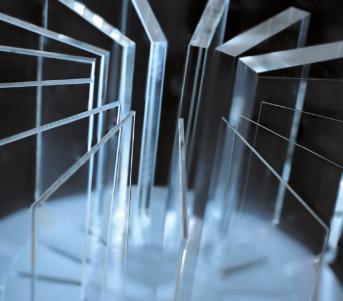
Hyperion Optics orders directly from Schott, offer two grades of custom borosilicate or equivalent windows, float grade which are cut from standard float sheet material and polished grade which are further intensively polished for better flatness and surface quality according to application requirement. We have been providing our standard and custom optical window for filter, first surface mirrors, protection windows utility.
Infrared Windows
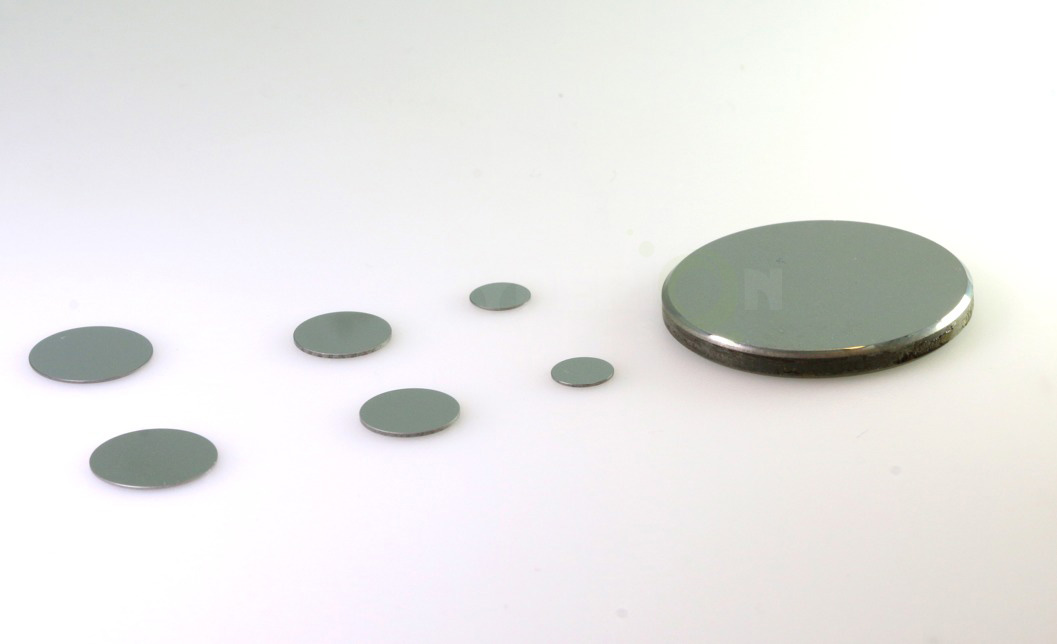
Among other materials for Hyperion Optics showing good transmission in 2-15 µm range. Due to high refractive index Ge lenses became very useful components of IR imaging systems operating in both “atmosphere windows”: 3-5 and 8-12 microns.
Both monocrystalline and polycrystalline Ge may be used for manufacturing of optical components. We produce Germanium lenses and windows for infrared thermal imaging applications and pyrometry (see our webpageGermanium windows and lenses for thermography). Also such components for spectroscopy as ATR prisms,detector windows, and IR Polarizers are available.
Ge is also good electromagnetic interference (EMI) shielding material. Its special grade called EMI for its ability to shield against electromagnetic interference has become increasingly important for modern military applications where other signals (within millimeter and centimeter range) can be strong enough to make nearby IR systems ineffective. Typical resistance for EMI grade Germanium is about 4 Ohm x cm but it depends on required level of spurious signal suppression. Using Ge window with such resistance these signals are effectively shorted out and the IR system shows good performance.
ZnSe ZnS window
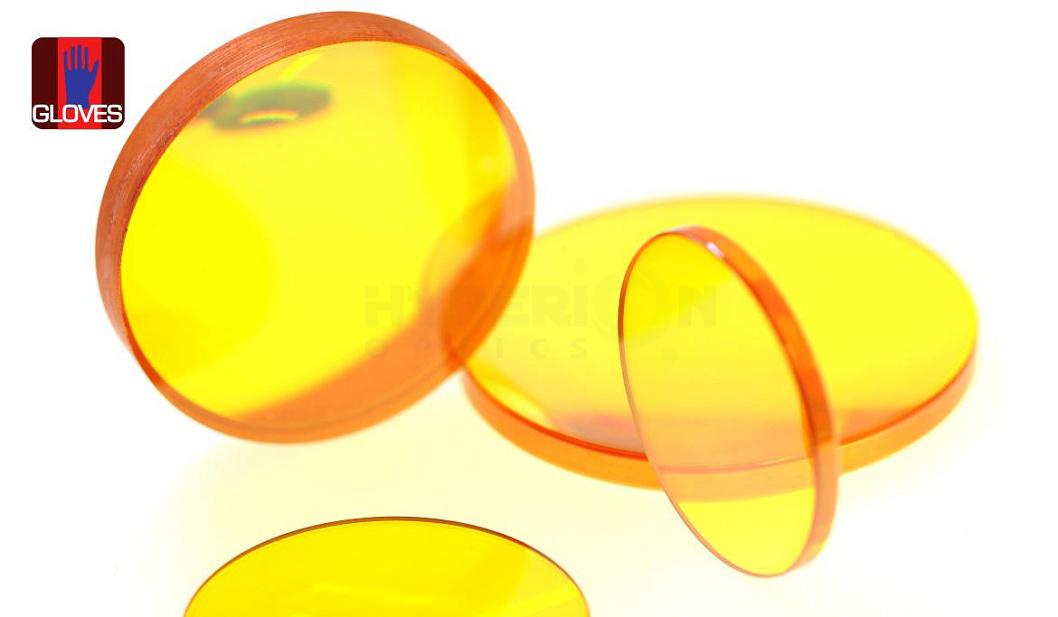
- Low Dispersion
- Available Uncoated or AR Coated
- Ideal for Thermal Imaging, FLIR, and Medical Systems
Hyperion Optics Zinc Selenide Windows (ZnS Windows) are perfect for a wide variety of infrared applications including thermal imaging, FLIR, and medical systems. This chemical vapor deposited material has extensive usage in high power CO2 laser systems because of its low absorption coefficient and high resistance to thermal shock. Zinc Selenide (ZnSe) is a relatively soft material that scratches easily, and it is not recommended in harsh environments because its Knoop Hardness is only 120. When handling, apply uniform pressure and wear Latex finger cots or gloves to prevent contamination.
Light Guides
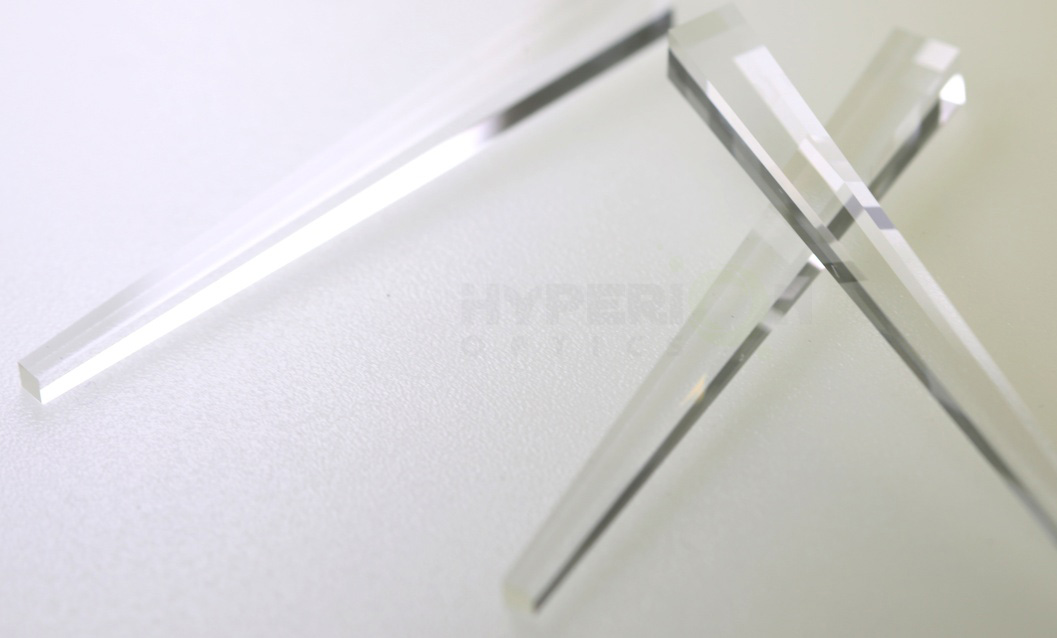
Hyperion Optics’s ranges of custom light guides are available in a variety of materials. Currently, we offer BK7 or equivalent, Sapphire or equal and UV Fused Silica light guides, in an assortment of diameters and thicknesses.It serves as the key element in cosmetic laser or intense pulsed light (IPL) applications. IPL is commonly used for the removal of unwanted hair, as well as a range of other cosmetic applications. IPL applications make use of a variety of wavebands to target different chromophores. For this reason, our custom light guides are available in a choice of materials to suit your waveband requirement.
Our custom BK7 or equivalent light guides offer a high internal reflection to minimize the loss of transmitted light. BK7 or equivalent can provide over 90% transmission between 330 and 2000nm, which makes this material an excellent choice for IPL applications used to treat pigmentation, as the peak absorption of the human pigment melanin is 335nm. BK7 or equivalent is also recommended for its high homogeneity and low bubble and inclusion content.
Our product also provides over 90% transmission at 335nm and work efficiently down to 185nm, making them an excellent alternative to BK7 or equivalent for pigmentation treatment. Besides, our custom fused silica light guides offer high thermal conductivity and an increased laser damage threshold, both of which are essential for cosmetic laser applications.
We also provide custom sapphire lenses light guides, a common alternative to BK7 and fused silica. Sapphire is a highly hard material, which offers increased durability and resistance to damage. Sapphire also provides excellent transmission over the entire visible and SWIR range.
A light-guide manipulates, or guides, the light to illuminate a larger lighting surface area.Lightguides, like light pipes, will also be made from optically transparent polymers, such as polycarbonate or acrylic.It made to your exact specification, available in UV fused silica, BK7 or equivalent and sapphire or equivalent for use in a variety of wavebands. Our highly skilled metrology and QA technicians can individually inspect and test each component to ensure it meets our excellent quality standard.
Quartz Fused Silica Windows
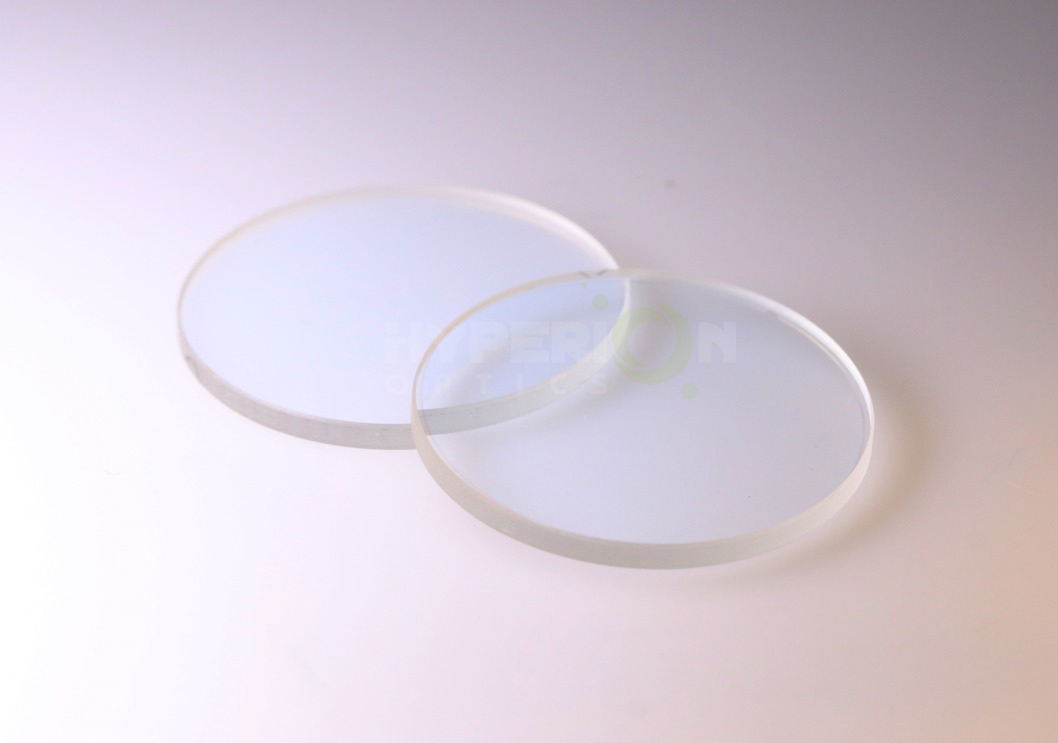
Hyperion Optics supplies a wide range of custom Quartz, UV fused silica and IR fused quartz windows through UV to infrared spectrum.
Custom quartz windows: have a useful transmission range from 0.26 visible to 2um in the infrared, which working temperature up to 1050°C, with typical AR coating applied, quartz windows are suitable for most visible to infrared applications.
Germanium Window
In the range of 2-12 μm, germanium is the most commonly used material for the production of spherical lenses and windows for high efficiency infrared in imaging system. Germanium has a high refractive index (about 4.0 through 2-14μm band), usually do not need to be modified due to its low chromatic aberration in low power imaging systems.
Labels: Borosilicate Windows, Germanium Window, Hyperion Optics, Infrared Windows, Light Guides, optical windows, Quartz Fused Silica Windows, ZnSe ZnS window

0 Comments:
Post a Comment
Subscribe to Post Comments [Atom]
<< Home